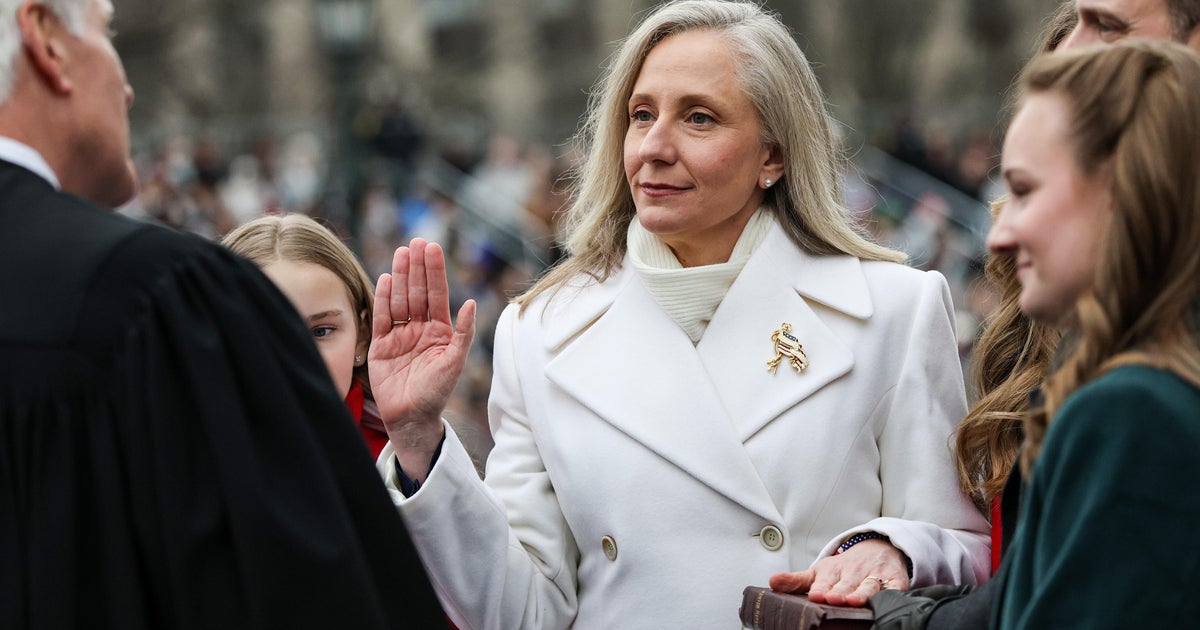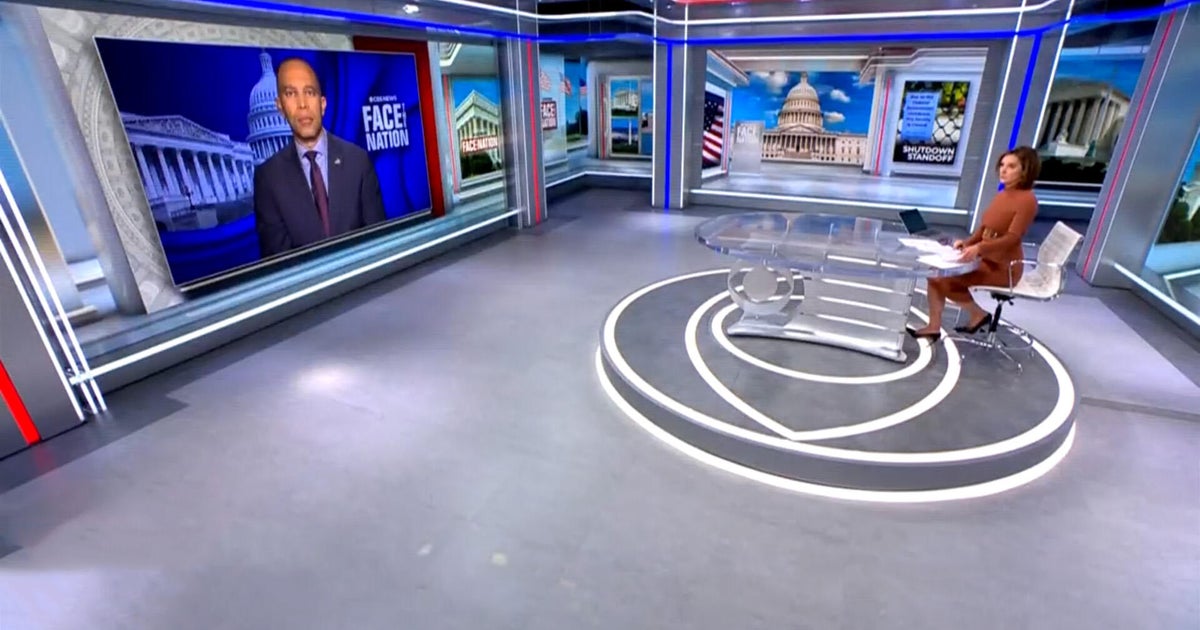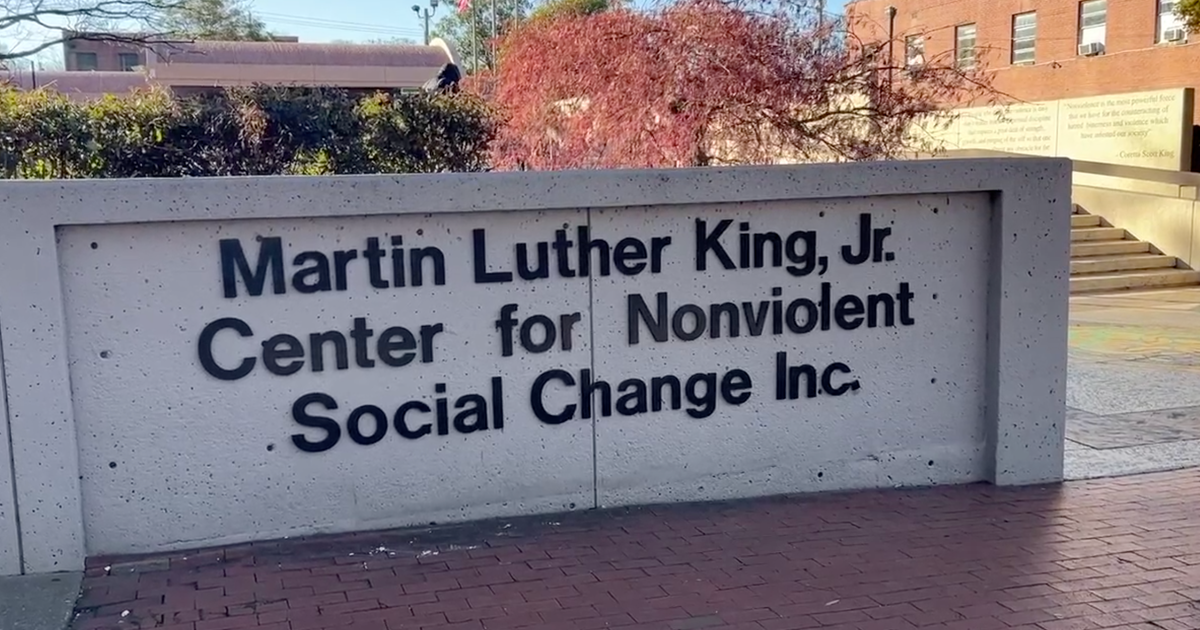Mark Meadows fails to appear before January 6 committee, risking contempt referral
Former President Trump's White House chief of staff, Mark Meadows, did not appear for a Friday morning deposition with the House select committee investigating the January 6 attack on the U.S. Capitol, daring the panel to invoke contempt proceedings against him.
In a statement, Meadows's attorney, George Terwilliger, indicated Meadows would not testify, absent a court ruling to do so. In a statement, he described a "sharp legal dispute" that centered around whether Meadows, who was chief of staff on January 6, could be compelled to testify, and whether he could be forced to answer questions involving privileged communications.
"Legal disputes are appropriately resolved by courts. It would be irresponsible for Mr. Meadows to prematurely resolve that dispute by voluntarily waiving privileges that are at the heart of those legal issues," Terwilliger said.
The committee disagrees. On Friday, the panel's chairman, Representative Bennie Thompson, and vice chair, Representative Liz Cheney, released a statement accusing Meadows of "choosing to defy the law" and failing to answer "even the most basic questions."
Thompson warned Meadows and Terwilliger in a letter Thursday of the consequences of his absence and failure to cooperate with the panel.
"Such willful noncompliance," he wrote, could result in a criminal referral to the Justice Department, as well as civil action "to enforce the subpoena brought against Mr. Meadows in his personal capacity."
Thompson pointed out Meadows' failure so far to produce any documents sought by the committee. He had instructed the former North Carolina congressman to turn them over by Friday morning, including a log of any records he'd seek to shield from the committee with the basis for withholding them. It's unclear whether Meadows complied in any with that request, although Thompson and Cheney in their statement said that he had joined a very small number of witnesses "who believe they are above the law and are defying a Select Committee subpoena outright."
Meadows's no-show came the same day a federal grand jury indicted former White House chief strategist Steve Bannon, stemming from his defiance of a subpoena from the committee. The House voted to hold Bannon in contempt in October, after he declined to be interviewed by the committee.
Congressional Democrats believe the Justice Department's prosecution of Bannon could discourage other witnesses from refusing their subpoenas. The select committee is currently weighing whether to pursue a contempt finding against Jeffrey Clark, a former Justice Department official who the committee said last week failed to cooperate with investigators. The committee claims there's evidence Clark used his position at the Justice Department to try to aid the former president's efforts to overturn the 2020 election results.
The panel is particularly interested in Meadows' testimony and records because committee members believe he has information that's critical to many parts of its inquiry. Meadows was said to have been around former President Trump on January 6, and to have also communicated with state-level and Justice Department officials in Mr. Trump's quest to overturn the 2020 election results.
Meadows was first subpoenaed by the committee in September. He was due to turn over records and sit for a deposition in October but was granted an extension. A committee aide at the time cited his engagement with the panel. But in recent weeks, some committee members acknowledged they're growing frustrated with Meadows.
"It's not a game of cat and mouse. This is not hide-and-go-seek," Representative Jaime Raskin told CBS News. "The committee can be reasonable in terms of adjusting people's schedules and addressing serious concerns they have but at a certain point, I assume our patience will run thin."
House Speaker Nancy Pelosi created the House select committee earlier this year to investigate the January 6 attack, when thousands of Trump supporters descended on the Capitol as Congress counted the electoral votes, a largely ceremonial final step affirming President Biden's victory. Lawmakers were sent fleeing amid the riot, which led to the deaths of five people and the arrests of hundreds more. Mr. Trump, who encouraged his supporters to "walk over" to the Capitol during the Stop the Steal rally, was impeached by the House one week later for inciting the riot but was later acquitted by the Senate.
Nikole Killion contributed to this story.





